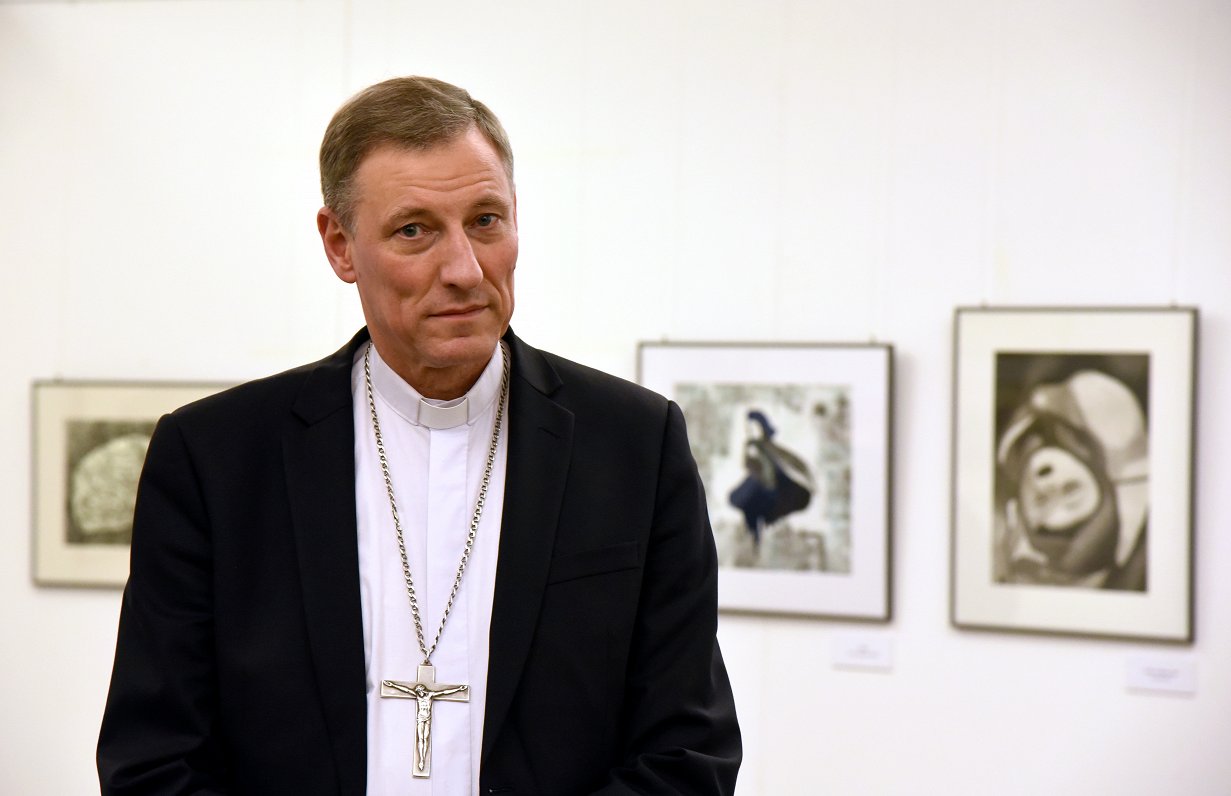Latvia signed the Istanbul Convention, a Council of Europe initiative that aims to reduce levels of violence against women, in 2016. However, the bill to ratify it is still stuck in the government. Critics of the convention say it includes terms that make them worried about protecting family values.
As the convention had finally made it to cabinet agenda, religious leaders sent a repeat letter objecting against adopting it.
The churches said the convention contradicts the Constitution and "makes it possible to impose on Latvia a project of changing society based on the gender ideology."
Previously the Roman Catholic Archbishop Zbigņevs Stankevičs visited the Greens and Farmers Union faction in the Latvian parliament and intends to meet National Alliance and Harmony MPs.
Even though Brigmanis previously supported the convention, he said he has changed his mind after meeting Stankevičs. "Mr. Stankevičs talked quite a lot about these matters. I won't delve into detail, bet there are several questions that cast doubt on whether ratifying the Istanbul Convention, such as it is, does not contradict the Latvian Consitution," he said.
"We won't support the cohabitation law when it goes to the parliament," Brigmanis added, referring to a public initiative, to be sent for review in the Latvian parliament, that seeks to give legal status to same-sex cohabitation.
While all MPs from the Greens and Farmers Union are now opposed to the convention, Prime Minister Māris Kučinskis, also of the same party, shies away from expressing his own views on the matter. It was planned to review the convention at a government committee meeting on January 22, but it has been removed from the agenda.
The Justice Ministry, meanwhile, also has objections to the convention, headed as it is by National Alliance representative Dzintars Rasnačs.
He also opposes to the use of the word "gender" in the convention text, claiming it would affect laws governing partnership.
This development means that Unity is the only party in the Latvian parliament supporting the convention. Welfare Minister Jānis Reirs, who signed the convention in 2016, still insists Latvia needs it.
"We fully support ratifying the convention, as the matters related to violence and violence in the family have not disappeared anywhere, and this convention is opposed just to that [violence]. I don't see any risks, and all EU countries, democratic countries, have supported adopting the convention, and more than half have ratified, and nothing extraordinary has resulted from it," he told Latvian Radio.
A total 46 countries have signed the convention and 28 have ratified it.
Previously the Justice Ministry commissioned a lawyer to express her views on the convention, and, inter alia, the lawyer came out with the remarkable claim that the agreement designed to help protect women from domestic violence would make it hard to celebrate the achievements of freedom fighters.
Latvia has a large-scale domestic violence problem. In 2014 EU-wide research said that 39% women in Latvia have faced physical and/or sexual violence by a partner or a non-partner since the age of 15, against the EU average of 33%.
A law allowing police to issue temporary restraining orders was introduced in 2014, and while it was used 91 times in that year, 509 cases were recorded in the first nine months of 2017.



























